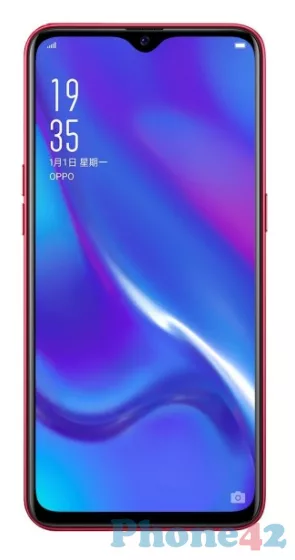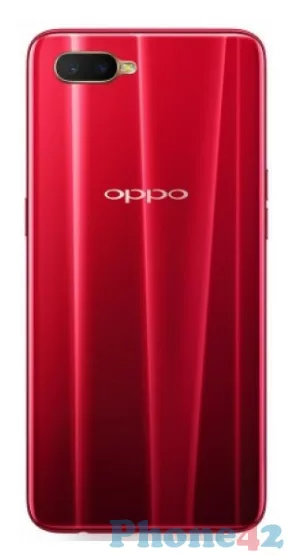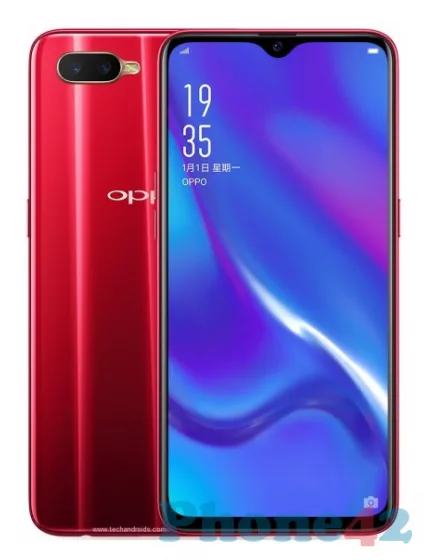
Oppo K1: Pros and Cons
Oppo announced the launch of the K1 smartphone in 2018. The manufacturer is offering this smartphone with 6.4 inch AMOLED display, Qualcomm Snapdragon 660 MSM8976 Plus SoC, and 4 GB of RAM. The K1 series was launched with Android OS v8.1 (Oreo) pre-installed, but it is upgradable. The 6.4 inch AMOLED displays has fast response times. The K1 has a multi-camera setup. The lens offers versatility. It lets you capture a wide range of subjects and scenes from different perspectives. Does this phone justify its price tag? I hope to provide clarity by the conclusion of my review.
Table of Contents
- Oppo K1 specifications
- Weight, dimensions, colors
- System, chipset, performance
- Display type, size, resolution
- Memory, storage
- Cameras, flash
- Connectivity, network, wireless
- Battery type, capacity, charger
- Features, sensors, specials
- Verdict, pros and cons
This article shares our personal experiences and thoughts about using the Oppo K1 smartphone. We hope to offer helpful insights to others interested in this device. The specifications below are from the official manufacturer data, but we also consider user reviews. If you've seen any mistakes or things missing in these specifications, please let us know.

Oppo K1 specifications
| Brand | Oppo |
|---|---|
| Name | K1 |
| Model | K1 |
| Release date | 2018 |
Weight, dimensions, colors
| Dimensions | 6.23 x 2.97 x 0.29 inch |
|---|---|
| Colors | blue, red |
| SIM type | Nano SIM |
Smartphones use a Nano SIM as a small chipcard for a subscriber identity module (SIM).
System, chipset, performance
| OS version | Android OS v8.1 (Oreo) |
|---|---|
| SoC | Qualcomm Snapdragon 660 MSM8976 Plus |
| CPU | Octa-core, Quad-core 2.2 GHz Kryo, Quad-core 1.84 GHz Kryo |
| GPU | Adreno 512 |
The Oppo K1 comes with Android OS v8.1 (Oreo) out of the box. Google has integrated many services with Android. These include Google Maps, Gmail, and Google Drive. An advanced scheduler manages this octa-core CPU. It assigns tasks to the CPU for real-time speed and power efficiency. Qualcomm's Snapdragon processors work with Adreno GPUs. The processors are designed for the GPUs.

Display type, size, resolution
| Display type | AMOLED |
|---|---|
| Screen size | 6.4 inch |
| Resolution | 1080 x 2340 px |
| Multitouch support | yes |
AMOLED displays enable an Always-On Display feature. A part of the screen remains active to display the time, date, and notifications. The 6.4 inch display should be big enough for your needs. It will make viewing comfortable. This is true whether you're reading, browsing, or watching. The size of the screen is measured diagonally, from corner to corner.
Memory, storage
| RAM | 4 GB |
|---|---|
| Internal storage | 64 GB |
| Memory card slot | microSD |
The Oppo K1 comes with 4 GB of RAM, which is considered to be sufficient for most users' needs. Having more RAM alone does not guarantee better performance. 64 GB of storage is usually seen as good for a smartphone. It should be enough for most users. You can expand the internal storage (64 GB) with a compatible microSD card.

Cameras, flash
| Main camera | 16 + 2 MP, 4608 x 3456 px, autofocus |
|---|---|
| Flash | Dual LED |
| Selfie camera | 25 MP |
Multiple cameras or depth sensors can help the smartphone. They can make its portrait mode effects more appealing. The K1 does not have optical image stabilization (OIS).
Connectivity, network, wireless
| GSM 2G bands | 850 / 900 / 1800 / 1900 |
|---|---|
| Network coverage | 2G / 3G / 4G |
| Wi-Fi | Wi-Fi 802.11 a/b/g/n |
| Bluetooth | v5.0, A2DP |
| GPS | A-GPS, GLONASS |
| NFC | no |
| FM radio | no |
| USB | microUSB 2.0 |
| Headphone | 3.5 mm jack |
The Oppo K1 supports 4G/LTE networks. The phone is capable of connecting to Wi-Fi networks. The K1 smartphone is capable of connecting to Bluetooth devices. The GPS allows this smartphone to find their exact location. It provides accurate navigation and mapping. The phone isn't NFC (Near Field Communication) capable. NFC is not essential for basic phone functionality, but it can be useful. The 3.5 mm headphone jack allows you to connect wired headphones or earphones to the device.
Battery type, capacity, charger
| Type | Li-Po 3600 mAh, non-removable |
|---|
The Li-Po 3600 mAh, non-removable battery gives the smartphone a good battery backup. The lithium polymer (Li-Po) battery is a light-weight, rechargeable battery. The battery of K1 isn't removable without voiding the warranty.
Features, sensors, specials
| Sensors | accelerometer, compass, fingerprint, gyroscope, in-display fingerprint sensor, light, proximity |
|---|---|
| Specials | ColorOS, Dual SIM |
Today, smartphones come with many sensors. They help make the user experience better. The accelerometer provides information about the smartphone's movement in three axes. These are X (horizontal), Y (vertical), and Z (depth). The K1 phone has a fingerprint scanner. The light sensor detects the level of light in the environment. Dual SIM is great for businesses. They want to give staff a device with separate numbers and bills for personal and business use.
Verdict, pros and cons
Every phone has its strengths and weaknesses, and this Oppo phone is no exception. As with any device, there are aspects that shine and others that fall short. By examining both sides, we can paint a complete picture of what this phone has to offer. Let's explore its standout features and areas for improvement. Remember, this is just my opinion, and yours might be different.
Pros
- AMOLED display
- appropriate screen size
- adequate memory
- microSD slot
- multicamera setup
- Dual SIM support
Cons
- no OIS function
- no 5G support
- no NFC feature
- no Type-C USB port
- low-capacity battery
Please let us know if you find incorrect information or something isn't working. Also, tell us if you have a suggestion for improvement.
 I'm Lucas Bradley, the founder of the Phone42.com site. I love technology, especially smartphones, and I've been working with tech stuff for more than 20 years. This means I've seen a lot of changes and have learned a bunch about what makes a good phone. On Phone42.com, I look at all kinds of phones. They can be from big, well-known companies or new ones trying to make their mark. I want to help people understand what's new and cool in the world of smartphones, in a way that's easy to get.
I'm Lucas Bradley, the founder of the Phone42.com site. I love technology, especially smartphones, and I've been working with tech stuff for more than 20 years. This means I've seen a lot of changes and have learned a bunch about what makes a good phone. On Phone42.com, I look at all kinds of phones. They can be from big, well-known companies or new ones trying to make their mark. I want to help people understand what's new and cool in the world of smartphones, in a way that's easy to get.